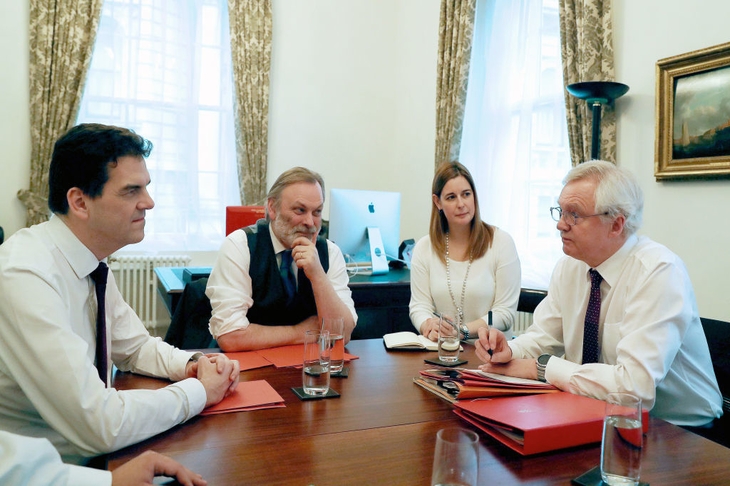Sir Mark Sedwill, the acting cabinet secretary, wrote to the Times on Tuesday to defend the honour of Olly Robbins, the Prime Minister’s EU adviser, who is credited, if that is the mot juste, with delivering Brexit. He was right to do so, because Mr Robbins is not allowed, by the rules, to defend himself, and ministers have unfortunately become readier than in the past to brief against civil servants. (And it must be said, civil servants to brief against ministers: look at the torrent of stuff against Boris Johnson while he was Foreign Secretary.) But I would ask Sir Mark to consider the question as it looks from the outside. I suppose I know several scores of existing and former civil servants and diplomats quite well, some very well. Among them, I have come across three or four who are pro-Brexit, quite a large minority whose views are genuinely unidentifiable, and dozens and dozens who are anti-Brexit, some passionately so. One told me, with burning anger and as if this were the knock-down argument, that if we Brexited, there would be fewer dinner invitations in Washington DC for British diplomats. Pro-EU views are natural among the senior official classes, because the EU form of government is bureaucratic rather than democratic, and therefore seems more rational to the official mind; but in such volume they undoubtedly add up to a bias. Sir Mark writes, ‘Civil servants have always trusted that our fellow citizens, whatever their views, know that we are doing our duty to implement the decisions of the governments they elect.’ Possibly, but Brexit is not a decision of a government, but of the people in a referendum. Pro-Brexit fellow citizens — decent ones anyway — recognise that the mandarins are conscientious, but it is simply not possible to believe that they are doing their best to get us out. Whitehall thinks Brexit is dreadful, so it tries to accomplish it not with maximum success, but with minimum damage. Its definition of damage is anything which separates Britain from the EU. It is an overwhelmingly negative and fearful frame of mind, and I am afraid Mr Robbins exhibits it.
So it may sound contradictory to agree with Lord Ricketts, former head of the Foreign Office, when he complains that the Foreign Office ‘has had its limbs amputated’ by being shut out of the Brexit process. Isn’t it good, after all, to keep that nest of Europhiles at bay? No, because the Foreign Office has the knowledge, contacts and skills, if given proper political leadership, to negotiate. If it is not allowed to take part, it has an incentive to weaken the process. One reason life is so ghastly for Mr Robbins is that Mrs May made the huge error of ‘taking personal charge’ of Brexit, which she is ill-qualified to do. Thus she removed her ability — so valuable for a prime minister — to keep some distance from the actions of her own government, and earned the undying enmity of those who know most about the subject.
This is an extract from Charles Moore’s Spectator Notes, which appears in this week’s magazine







Comments